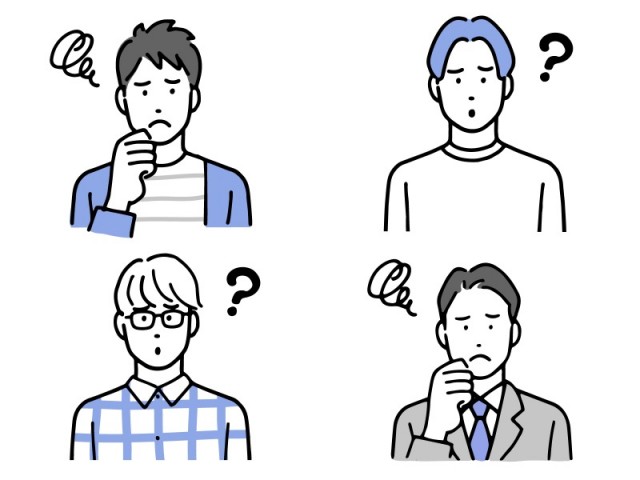The 10 Most Scariest Things About Adult ADHD Diagnosis
ページ情報
照会 2回
作成日: 24-05-05 06:42
본문
Adult Adhd Diagnosis (Www.Encoskr.Com)
For some people being diagnosed with adult ADHD is the first step to get treatment. They may be frustrated at work, in their homes or even in their social life because of symptoms like fidgeting or ignoring things.
Getting diagnosed with ADHD as an adult often involves undergoing a thorough evaluation that involves interviewing the individual and their family members, using standardized tests and rating scales. This usually involves an examination of the body.
Symptoms
For many adults, a diagnosis of ADHD can have a profound impact on their lives. It can help people to understand why they've had to struggle for so long and make sense out of their past choices. It can also provide hope for the future to be brighter. If you're struggling to find your keys, feel like you're not able to finish your work or you're being labelled lazy or irresponsible or you have been accused of being irresponsible or lazy, Then a diagnosis will assist you in finding the best treatment for you.
For most adults, the signs are present in a variety of areas of their lives and are more prevalent in one place than the other. They might be impulsive and unfocused at school, but struggle in keeping up with their work. They may forget to keep appointments or underestimate the time required to complete their tasks. They may have trouble making friends or have frequent fights with their spouses. If these problems are severe they can interfere with everyday life and cause anxiety or depression.
It's important to diagnose ADHD however, it's important to identify other factors might be causing the symptoms. Stress, other mental health issues and medications can trigger symptoms similar to those of ADHD. To ensure that the root issue is addressed an in-depth evaluation by a specialist is required.
Adults suffering from ADHD do not show the same signs of hyperactivity as children. Instead, the signs of hyperactivity manifest more subtly, such as fidgeting or a difficulty sitting in chairs. Women with ADHD tend to exhibit these signs more frequently because they are able to hide their inattentional behavior within their social and professional lives.
During an evaluation, the doctor will review the patient's medical history and consider how their symptoms interfere with their daily lives. They will also inquire about family history, and when possible, ask a family member their views on childhood behavior. They might also conduct neuropsychological, psycho-psychological or testing for learning disabilities. In certain instances it is required to conduct an examination of the body to rule out specific illnesses which can mimic the symptoms associated with ADHD.
Diagnosis
It is crucial for adults who believe they might be suffering from ADHD to discuss their symptoms with a medical specialist, especially if the issues are related to school or work. Primary care providers may refer patients to mental health professionals who have experience in adult ADHD assessments. Those professionals should be willing to share information regarding their training level and experiences working with adults suffering from ADHD, Hamdani says. Hamdani suggests that anyone who is hesitant to share the information needed to be viewed with suspicion.
Getting a diagnosis of adult ADHD can be a life-changing experience. It offers a rationale for years of self-criticism and frustration for certain. Others feel a sense relief that there's an explanation for the struggles they've faced in their lives or that their problems weren't just "in their heads."
In most cases, an adult diagnosed with ADHD is diagnosed by conducting a thorough interview with a professional who is qualified. This may include a thorough review of the person's medical, family, and personal history. Additionally, the doctor will likely request the person to rate his or her behavior on one or more of the standardized ADHD behavior scales. These ratings are basing on research that compares the behavior of people with ADHD to those of people who do not suffer from the disorder.
The individual will also be asked about how the symptoms impact their life. In order to meet the diagnostic criteria for ADHD, an adult must have at least five persistent symptoms of inattention or hyperactivity-impulsivity that cause significant impairment in at least two settings (such as home, school and work) and that are not better explained by other factors.
The people who are diagnosed of adult ADHD typically have co-existing disorders known as comorbidities. Depression, anxiety disorders and alcohol or drug use are all common comorbidities associated with ADHD. Some experts believe that these comorbidities are a result of maladaptive strategies for dealing with the frustrations of untreated ADHD.
It's important to note that ADHD affects more males than females. Many people suffering from the disorder struggle to be diagnosed because of the long-standing prejudices regarding the symptoms of the disorder and how they affect men and women. Women can also be capable of masking their symptoms better, which could lead to an incorrect diagnosis or delay in obtaining a diagnosis.
Treatment
It may be helpful for those who have been diagnosed with ADHD to talk to an expert in mental health that has expertise in treating adults suffering from adhd diagnosis uk. The specialist can instruct the adult behavioral strategies to manage their symptoms and improve their performance at home, work or at school. They can also assist adults to learn to understand why their behavior is different and what triggers them.
A mental health professional must examine an adult thoroughly as they could have other disorders that are similar to ADHD. This may include a detailed description of the scale and the forms filled out by the client or other people who know him/her along with a family and psychiatric history and an extensive physical examination.
A thorough assessment is crucial to determine if the adult has a comorbid disorder, such as depression or anxiety. These conditions can increase ADHD symptoms and make treatment more difficult. A mental health professional can also perform cognitive or neuropsychological tests to determine how the brain functions and to determine the cause of the problems, such as the presence of a learning impairment or physical illness.
Treatment options for adults with ADHD typically involve psychological counseling (psychotherapy) and educational programs. Adults can benefit from individual talk therapy to boost their self-esteem as well as deal with the emotional burdens that come with ADHD. Behavioral therapies can also help improve time management, organization and impulse control. They can also address the impact stressors have on a person's ability to perform.
Some people with ADHD can benefit from group therapy. This kind of therapy can provide an opportunity to meet other people with the same challenges and discuss ways to overcome these challenges. These groups are often organized by groups of support or an advocacy group.
Many people suffering from ADHD can also be treated by medication. There are many medications available, including stimulants that increase the levels of norepinephrine and dopamine in the brain (for instance, methylphenidate which is sold as Ritalin). Others aid in managing mood and decrease impulsive behavior, like antidepressants and bupropion, an antipsychotic drug (Wellbutrin). Your Mercy doctor will be able to discuss all treatment options with you.
Support
Adults with ADHD may have the disorder for a long time without realizing it. They might seek an evaluation because they are annoyed by daily challenges like forgetting appointments or making a mistake at work, or neglecting the demands of friends and family. It's normal for these people to feel a sense of relief when they receive an answer, particularly when they understand why they have been struggling throughout their lives.
A mental health professional may conduct an ADHD evaluation, but the primary physician is typically an excellent starting point. If necessary, the physician may refer the patient to a specialist. A psychiatric nurse, psychiatrist or psychologist could be qualified to examine ADHD in adults. Many insurance plans list professionals by specialty and adult adhd Diagnosis can assist people in finding an expert in health care who is familiar with ADHD in adults.
During the assessment, a mental health professional will ask about the person's previous issues and how ADHD symptoms have affected them. It is essential to be honest and forthcoming during the evaluation, so that the mental healthcare professional can make an accurate assessment.
Psychotherapy, or psychological counseling, can help people manage their symptoms and improve their relationships. Behavioral therapy, such as cognitive behavioral therapy, helps people develop specific techniques to alter their behavior patterns and thinking patterns. Therapy is often paired with medication, which can to reduce the effects of the disorder.
Social support groups are beneficial to many adults ADHD patients. The chance to share their challenges with others who have similar challenges can be a source of inspiration and encouragement. Some of these groups are online and are open to everyone who has ADHD. Some groups are geared towards specific populations, like African Americans who have ADHD or couples who are affected by the disorder, or those who identify themselves as gay or lesbian.
Some people may experience feelings of shame or embarrassment over their symptoms, which may hinder their desire to seek assistance. A health professional should explain to the patient that ADHD is not a sign of weakness or failure.
For some people being diagnosed with adult ADHD is the first step to get treatment. They may be frustrated at work, in their homes or even in their social life because of symptoms like fidgeting or ignoring things.
Getting diagnosed with ADHD as an adult often involves undergoing a thorough evaluation that involves interviewing the individual and their family members, using standardized tests and rating scales. This usually involves an examination of the body.
Symptoms
For many adults, a diagnosis of ADHD can have a profound impact on their lives. It can help people to understand why they've had to struggle for so long and make sense out of their past choices. It can also provide hope for the future to be brighter. If you're struggling to find your keys, feel like you're not able to finish your work or you're being labelled lazy or irresponsible or you have been accused of being irresponsible or lazy, Then a diagnosis will assist you in finding the best treatment for you.
For most adults, the signs are present in a variety of areas of their lives and are more prevalent in one place than the other. They might be impulsive and unfocused at school, but struggle in keeping up with their work. They may forget to keep appointments or underestimate the time required to complete their tasks. They may have trouble making friends or have frequent fights with their spouses. If these problems are severe they can interfere with everyday life and cause anxiety or depression.
It's important to diagnose ADHD however, it's important to identify other factors might be causing the symptoms. Stress, other mental health issues and medications can trigger symptoms similar to those of ADHD. To ensure that the root issue is addressed an in-depth evaluation by a specialist is required.
Adults suffering from ADHD do not show the same signs of hyperactivity as children. Instead, the signs of hyperactivity manifest more subtly, such as fidgeting or a difficulty sitting in chairs. Women with ADHD tend to exhibit these signs more frequently because they are able to hide their inattentional behavior within their social and professional lives.
During an evaluation, the doctor will review the patient's medical history and consider how their symptoms interfere with their daily lives. They will also inquire about family history, and when possible, ask a family member their views on childhood behavior. They might also conduct neuropsychological, psycho-psychological or testing for learning disabilities. In certain instances it is required to conduct an examination of the body to rule out specific illnesses which can mimic the symptoms associated with ADHD.
Diagnosis
It is crucial for adults who believe they might be suffering from ADHD to discuss their symptoms with a medical specialist, especially if the issues are related to school or work. Primary care providers may refer patients to mental health professionals who have experience in adult ADHD assessments. Those professionals should be willing to share information regarding their training level and experiences working with adults suffering from ADHD, Hamdani says. Hamdani suggests that anyone who is hesitant to share the information needed to be viewed with suspicion.
Getting a diagnosis of adult ADHD can be a life-changing experience. It offers a rationale for years of self-criticism and frustration for certain. Others feel a sense relief that there's an explanation for the struggles they've faced in their lives or that their problems weren't just "in their heads."
In most cases, an adult diagnosed with ADHD is diagnosed by conducting a thorough interview with a professional who is qualified. This may include a thorough review of the person's medical, family, and personal history. Additionally, the doctor will likely request the person to rate his or her behavior on one or more of the standardized ADHD behavior scales. These ratings are basing on research that compares the behavior of people with ADHD to those of people who do not suffer from the disorder.
The individual will also be asked about how the symptoms impact their life. In order to meet the diagnostic criteria for ADHD, an adult must have at least five persistent symptoms of inattention or hyperactivity-impulsivity that cause significant impairment in at least two settings (such as home, school and work) and that are not better explained by other factors.
The people who are diagnosed of adult ADHD typically have co-existing disorders known as comorbidities. Depression, anxiety disorders and alcohol or drug use are all common comorbidities associated with ADHD. Some experts believe that these comorbidities are a result of maladaptive strategies for dealing with the frustrations of untreated ADHD.
It's important to note that ADHD affects more males than females. Many people suffering from the disorder struggle to be diagnosed because of the long-standing prejudices regarding the symptoms of the disorder and how they affect men and women. Women can also be capable of masking their symptoms better, which could lead to an incorrect diagnosis or delay in obtaining a diagnosis.
Treatment
It may be helpful for those who have been diagnosed with ADHD to talk to an expert in mental health that has expertise in treating adults suffering from adhd diagnosis uk. The specialist can instruct the adult behavioral strategies to manage their symptoms and improve their performance at home, work or at school. They can also assist adults to learn to understand why their behavior is different and what triggers them.
A mental health professional must examine an adult thoroughly as they could have other disorders that are similar to ADHD. This may include a detailed description of the scale and the forms filled out by the client or other people who know him/her along with a family and psychiatric history and an extensive physical examination.
A thorough assessment is crucial to determine if the adult has a comorbid disorder, such as depression or anxiety. These conditions can increase ADHD symptoms and make treatment more difficult. A mental health professional can also perform cognitive or neuropsychological tests to determine how the brain functions and to determine the cause of the problems, such as the presence of a learning impairment or physical illness.
Treatment options for adults with ADHD typically involve psychological counseling (psychotherapy) and educational programs. Adults can benefit from individual talk therapy to boost their self-esteem as well as deal with the emotional burdens that come with ADHD. Behavioral therapies can also help improve time management, organization and impulse control. They can also address the impact stressors have on a person's ability to perform.
Some people with ADHD can benefit from group therapy. This kind of therapy can provide an opportunity to meet other people with the same challenges and discuss ways to overcome these challenges. These groups are often organized by groups of support or an advocacy group.
Many people suffering from ADHD can also be treated by medication. There are many medications available, including stimulants that increase the levels of norepinephrine and dopamine in the brain (for instance, methylphenidate which is sold as Ritalin). Others aid in managing mood and decrease impulsive behavior, like antidepressants and bupropion, an antipsychotic drug (Wellbutrin). Your Mercy doctor will be able to discuss all treatment options with you.
Support
Adults with ADHD may have the disorder for a long time without realizing it. They might seek an evaluation because they are annoyed by daily challenges like forgetting appointments or making a mistake at work, or neglecting the demands of friends and family. It's normal for these people to feel a sense of relief when they receive an answer, particularly when they understand why they have been struggling throughout their lives.
A mental health professional may conduct an ADHD evaluation, but the primary physician is typically an excellent starting point. If necessary, the physician may refer the patient to a specialist. A psychiatric nurse, psychiatrist or psychologist could be qualified to examine ADHD in adults. Many insurance plans list professionals by specialty and adult adhd Diagnosis can assist people in finding an expert in health care who is familiar with ADHD in adults.
During the assessment, a mental health professional will ask about the person's previous issues and how ADHD symptoms have affected them. It is essential to be honest and forthcoming during the evaluation, so that the mental healthcare professional can make an accurate assessment.
Psychotherapy, or psychological counseling, can help people manage their symptoms and improve their relationships. Behavioral therapy, such as cognitive behavioral therapy, helps people develop specific techniques to alter their behavior patterns and thinking patterns. Therapy is often paired with medication, which can to reduce the effects of the disorder.
Social support groups are beneficial to many adults ADHD patients. The chance to share their challenges with others who have similar challenges can be a source of inspiration and encouragement. Some of these groups are online and are open to everyone who has ADHD. Some groups are geared towards specific populations, like African Americans who have ADHD or couples who are affected by the disorder, or those who identify themselves as gay or lesbian.
Some people may experience feelings of shame or embarrassment over their symptoms, which may hinder their desire to seek assistance. A health professional should explain to the patient that ADHD is not a sign of weakness or failure.








